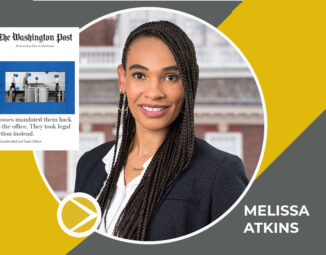Liability For CEO Misconduct Expands After #MeToo
This article was originally published in Law360.
In February, the Nevada Gaming Commission levied a record fine against Wynn Resorts. The fine was not for gaming improprieties or gambling violations. Instead, the $20 million fine came as a result of Wynn Resorts failing to take action after repeated reports of the founder and former CEO Steve Wynn’s alleged sexual misconduct were raised to the board of directors over the course of years.
Wynn was empowered to operate with impunity and was apparently beyond reproach despite the board’s knowledge of the allegations. Wynn Resorts is just one of many organizations where different rules have been institutionalized for top performers or “sacred cows” which has enabled them to, allegedly, trade on their brands and professional achievements to victimize others in the workplace with impunity.
Prior to the #MeToo monsoon, legal liability for sexual harassment largely lay at the feet of the alleged harasser, direct management and human resources. The #MeToo movement has changed not only the face of employment litigation and liability, but has also widened the scope of liability beyond the employment context, into shareholder litigation and fiduciary duty finally resulting in significant loss to stock value.
Before #MeToo, employment litigators largely assessed exposure by adding up the aggrieved party’s emotional distress damages, back pay, front pay, attorneys’ fees and potential punitive damages. That classic economic assessment has been altered by the #MeToo movement.
The Wynn fine is part of a settlement reached with the Nevada Gaming Commission. As part of the settlement, Wynn Resorts publicly admitted that they “have focused on a single man, rather than the company’s greatest asset, it’s 25,000 employees.” Further, they admitted that they “fell short” in “one of the most important areas for an employer — focusing on its employees.” However, the litigation and liability resulting from the sexual misconduct allegations, and settlements of those claims, will not end with current or former employee litigation.
Litigation, exposure and the liability assessment is no longer exclusively focused on alleged victims and harassers. Shareholders, in particular, are becoming more of a litigation threat in the sexual harassment liability landscape. However, there is a lack of clear guidance as to when publicly traded companies should disclose sexual harassment.
On the one hand, there is no case law that would obligate such disclosure. On the other hand, public companies are vulnerable to litigation when there is a breach of fiduciary duty because behavior is known and it is tolerated or if such information is intentionally withheld and thus no disclosure is made. Moreover, plaintiffs rely on many different legal theories in making federal and state law securities claims.
The Wynn Resorts derivative litigation brought by shareholders of the organization, in particular, serves as a great example of how post-#MeToo courts have been more willing to interpret a board’s failure to act as enough to overcome the high burden plaintiffs face when bringing a breach of fiduciary duty claim for failure to exercise oversight.
Derivative plaintiffs seeking damages for a board’s failure to monitor and oversee the alleged harasser is called a Caremark claim[1]. Historically, plaintiffs have been unsuccessful in establishing that the board’s knowledge of misconduct amounts to conscious disregard of their duty to monitor the alleged harasser. The plaintiffs in DiNapoli v. Wynn[2] have blazed a new trail as they are the first derivative plaintiffs that have been able to establish demand futility for a Caremark claim.
The plaintiffs in the Wynn derivative action were able to establish that, even if a demand to sue was made, the board at that time was incapable of impartially considering a demand to sue. As a result, the litigation is ongoing and will continue to create precedent-setting jurisprudence that will serve as a road map for future plaintiffs.
Prior to the $20 million fine, the highest fine in Nevada state history was $5.5 million levied against a sports betting and mobile gaming company — nearly a quarter of the recent fine against Wynn. While the Wynn fine is historic, the greatest measurable loss as a result of the debacle is likely to be the loss to the stock value. The company has lost 35 percent of its market value since the Wall Street Journal published the results of their investigation into the numerous allegations against Wynn a year ago.
Brand equity (or the prestige, reputation), and brand recognition of a product or service is significantly impacted by the corrosive nature of misconduct allegations. Brand equity and recognition are baked into a company’s value (stock price). Companies with strong brand equity (versus a generic product) will see higher valuations than peers with equal financial performance. Conversely, companies with negative brand equity see their stock prices plummet.
Due to the media focus and societal outcry following #MeToo, organizations led by Hollywood A-listers are only that much more vulnerable to sharp losses in stock value as a result of reputational damage. Wynn Resort’s steep stock drop is also almost certainly based upon the market’s expectation of the brand’s future performance. Luxury brands are, by definition, valued based upon the strength of their value-add to the public at large. Wynn Resort’s market losses and future expectations will inevitably be tied to the alleged sexual misconduct of its founder for years to come.
While sexual impropriety may not be readily apparent to management or corporate boards, permission for sacred cows or celebrity CEO’s to flout rules and policies is perceptible. While the board of directors is supposed to be managing the C-suite, the dynamic of the celebrity CEO often means that the stated hierarchy differs from the actual organizational dynamics.
While the Wynn Resorts board of directors was charged with monitoring management, including the behavior of its founder, the sacred cow or celebrity CEO phenomenon laid the groundwork for the permissive culture and decision to turn a blind eye. Allowing Wynn to operate without mitigation and in contradiction to and without the oversight of the corporate hierarchy left the chain of command vulnerable and incapable of combating the alleged impropriety.
The irony is that companies whose brands are inextricably tied to the founder or a celebrity CEO require boards to be even more vigilant and stringent in enforcing codes of conduct since they have the most to lose.
[1] In re Caremark Int’l Inc. Derivative Litig ., 698 A.2d 959 (Del. Ch. 1996)
[2] Thomas P. DiNapoli. v. Stephen A. Wynn, et al., Case No. A-18-770013-B, District Court, Clark County, Nevada




